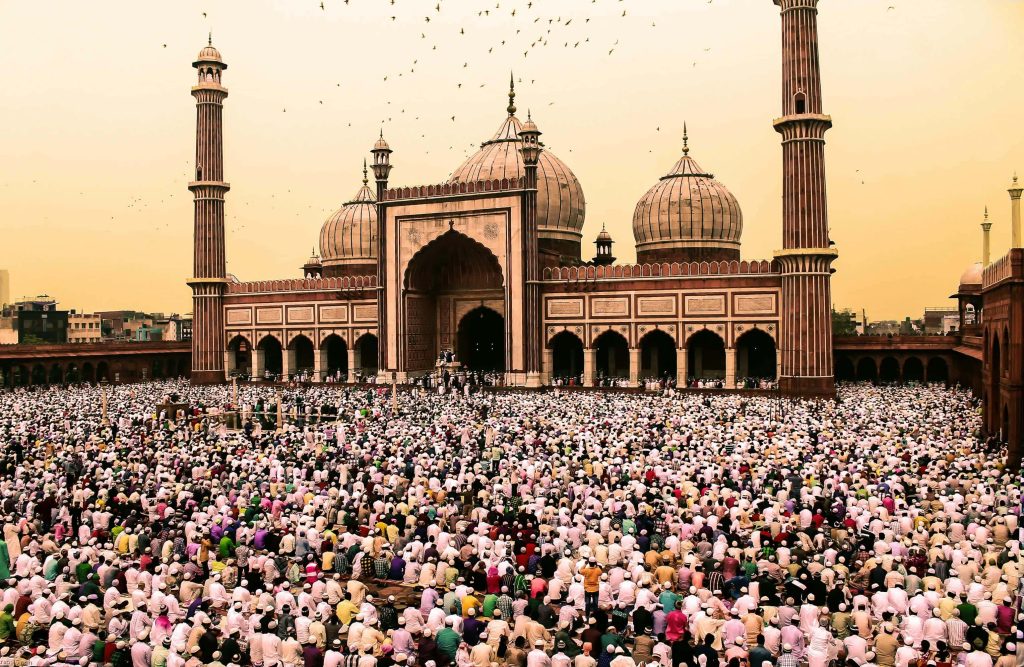
Christianity vs Islam: Key Differences in Beliefs and Practices
Christianity vs Islam stand as the two largest religions globally, with billions of adherents. Both share roots in the Abrahamic tradition and have shaped human history profoundly. Despite their common origins, Christianity and Islam differ significantly in beliefs, practices, and cultural expressions. Understanding these differences is essential for appreciating their uniqueness and fostering mutual respect.
1. Historical Origins of Christianity vs Islam
The Beginnings of Christianity
Christianity began approximately 2,000 years ago in the Roman province of Judea. It centers on the life, death, and resurrection of Jesus Christ, whom Christians regard as the Son of God and the Messiah prophesied in the Hebrew Scriptures. The faith spread rapidly through the Roman Empire, largely due to the efforts of apostles like Paul, and eventually became the dominant religion of Europe.

The Rise of Islam
The Prophet Muhammad, who Muslims consider to be the final prophet in a long line of prophets that also includes Moses and Jesus, is inextricably linked to the establishment of Islam. Muslims from all walks of life aspire to emulate Muhammad since he was the selected recipient and messenger of God’s word through the revelations from God. The most significant Muslim books, after the sacred Qur’an, are the Prophet’s sayings (hadith) and accounts of his lifestyle (Sunna).
Islam emerged in the 7th century CE in the Arabian Peninsula. Prophet Muhammad is considered the founder of Islam, who received divine revelations from God (Allah) over 23 years, compiled as the Quran. The faith quickly spread across the Middle East, North Africa, and beyond, forming a unified community known as the Ummah.
Around 570 A.D., Muhammad was born into the Quraish, the most powerful clan in Mecca. The Quraish were powerful because they were prosperous traders. The Quraish were able to control trade throughout the west coast of Arabia, north to Syria, and south to Yemen because of the intersection of several trade routes at Mecca.
Two highly regarded polytheistic cults in Mecca were believed to have gods that would safeguard its profitable trade. Muhammad was employed by Khadija, a wealthy widow, to make sure her caravans traveled safely to Syria after he had been a merchant for a number of years. In the end, they got married.
2. Core Beliefs: God and Theology
Christianity’s Concept of God
Christianity emphasizes the doctrine of the Trinity, which defines God as one being in three persons: the Father, the Son (Jesus Christ), and the Holy Spirit. This belief underscores God’s multifaceted nature and the intimate relationship between God and humanity.
Islam’s View of Allah
Islam stresses absolute monotheism, known as Tawhid. Allah is singular, indivisible, and incomparable. The Quran explicitly rejects the idea of a divine son or any partnership with God, emphasizing that Allah alone is worthy of worship.
3. Jesus Christ: Prophet or Savior
Jesus in Christianity
Christians believe Jesus is the divine Son of God, sent to save humanity from sin through his crucifixion and resurrection. His teachings form the cornerstone of Christian theology, emphasizing love, forgiveness, and eternal life through faith in him.
Jesus in Islam
In Islam, Jesus (known as Isa) is revered as one of the greatest prophets but not divine. Muslims believe he performed miracles and will return at the end of times to restore justice. However, they reject the crucifixion, asserting that he was raised to heaven without being killed.
4. Sacred Texts: The Bible vs. The Quran
The Christian Bible
The Bible is the holy book of Christians, consisting of the Old Testament (shared with Judaism) and the New Testament. The New Testament includes the Gospels, which detail Jesus’s life and teachings, and letters from early Christian leaders.

The Quran in Islam
The Quran is considered the literal word of God, revealed to Muhammad over 23 years. Complementary to the Quran are the Hadith, collections of Muhammad’s sayings and actions, which guide Muslim practices and ethics.

5. Worship and Ritual Practices
Prayer and Worship in Christianity
Christian worship often includes communal gatherings, such as Sunday services featuring hymns, prayers, and sermons.

Islamic Worship Practices
Muslims are required to pray (Salah) five times a day, facing Mecca. This ritual emphasizes discipline and devotion. Mosques serve as centers for communal worship, especially during Friday prayers and special occasions like Ramadan.

6. Moral and Ethical Frameworks
Christian Ethics
Christian morality is rooted in the teachings of Jesus, particularly the commandments to love God and neighbor. The Sermon on the Mount provides guidance on humility, charity, and forgiveness.
Islamic Ethics
Islamic morality is derived from the Quran and Hadith. The concept of Halal (permissible) governs daily behavior, while acts of kindness, justice, and charity are strongly emphasized.
7. Differences in Key Religious Practices
Pilgrimage and Festivals
- Christianity: Christians observe holidays like Christmas (celebrating Jesus’s birth) and Easter (marking his resurrection). Pilgrimages, such as visits to Jerusalem or Vatican City, are less obligatory but spiritually significant.
- Islam: The Hajj pilgrimage to Mecca is one of Islam’s Five Pillars and a mandatory act for Muslims who are physically and financially able. Major festivals include Eid al-Fitr and Eid al-Adha.
Dietary Laws
- Christianity: Most Christians do not adhere to strict dietary laws, though some observe fasting during Lent or avoid certain foods on specific days.
- Islam: Islamic dietary guidelines prohibit pork and alcohol and mandate that meat be Halal. Fasting during Ramadan is also a key practice.
8. Salvation and Afterlife
Christianity’s View on Salvation
Christianity teaches that forgiveness for sins and faith in Jesus Christ are the paths to salvation, which is a gift of grace. While damnation awaits the unrepentant, believers are promised eternal life in heaven.
Islam’s Understanding of Salvation
In Islam, salvation is earned through faith in Allah, good deeds, and adherence to Islamic teachings. The Day of Judgment will determine each individual’s eternal fate, with rewards for righteousness and punishments for wrongdoing.
9. Role of Women in Religion
Women in Christianity
The role of women varies across Christian denominations. While some branches ordain female clergy, others maintain traditional restrictions. Women’s contributions are celebrated, particularly figures like Mary, the mother of Jesus.
Women in Islam
Islam grants women specific rights, including inheritance, education, and participation in social life. However, interpretations of these rights vary across cultures, often influenced by local traditions.
10. Common Misconceptions and Shared Values
Addressing Misunderstandings
Both Christianity and Islam are often misunderstood. Christianity is sometimes seen as exclusively Western, while Islam is frequently associated with extremism. In reality, both are diverse and global religions.
Shared Values and Goals
Both religions emphasize compassion, justice, and charity. Their teachings encourage respect for family, care for the needy, and the pursuit of a virtuous life.
11. Interfaith Dialogue and Future Perspectives
Promoting Understanding
Interfaith initiatives are essential for bridging divides between Christians and Muslims. Open dialogues, cultural exchanges, and joint community projects can foster mutual respect and cooperation.
Embracing Diversity
As the world becomes more interconnected, understanding the differences and commonalities between Christianity and Islam can help build inclusive and harmonious societies.
Conclusion
Christianity and Islam, while distinct in theology and practice, share deep spiritual roots and values that have profoundly influenced civilizations. By understanding their differences and appreciating their common ground, we can promote dialogue, tolerance, and peace in a diverse world.
FAQs
1. What are the main differences between Christianity and Islam?
The primary differences lie in theology, particularly the Christian belief in the Trinity and Jesus’s divinity, contrasted with Islam’s strict monotheism and view of Jesus as a prophet.
2. Do Christians and Muslims worship the same God?
Both worship a single, all-powerful God, but their understanding and portrayal of God differ significantly.
3. How do Christianity and Islam view salvation?
Christianity teaches salvation through faith in Jesus, while Islam emphasizes faith in Allah and righteous actions.
4. What are the key scriptures of each religion?
Christians follow the Bible, while Muslims revere the Quran and Hadith as their primary texts.
5. How can Christians and Muslims foster better relationships?
Through education, interfaith dialogue, and shared efforts in addressing global challenges, both communities can build stronger bonds of understanding.
